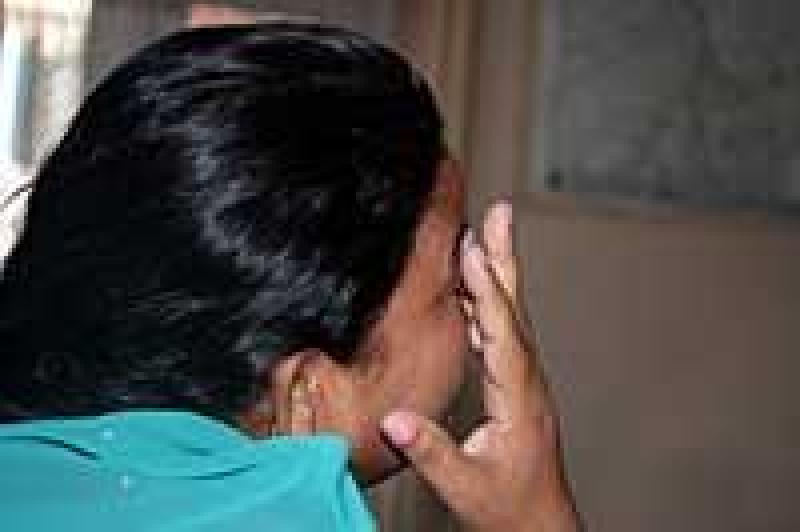

Funded through the Peacebuilding Fund/UN Peace Fund for Nepal, this OHCHR-project supports the establishment and effective functioning of a Truth and Reconciliation Commission and a Commission of Inquiry on Disappearances, providing grants to conflict victim groups and CSOs, especially those working with women, children and the indigenous communities at the grassroots level, to bring their voices into the process of transitional justice.
Kathmandu, Nepal - “Peace is the most important thing for Nepal. Only when victims get justice and our voices are heard can we have lasting peace,” says Laxmi Khadka, whose husband disappeared during the decade-long conflict that killed thousands and ruined many more lives in the Himalayan country.
Khadka, 40 and a mother of three, tells a story of sorrow and pain. She has been searching in vain for her husband. “It was 8:15pm one evening six years ago; two Maoists came to our house and asked my husband to come with them. I didn’t see him ever after.”
But it is also a story of courage and strength. Khadka works with other conflict victims in Bardiya, Western Nepal, to get their voices heard in the transitional justice process. She is an active member of a local Conflict Victims Committee (CVC), a group established with the support of the United Nations human rights office in Nepal (OHCHR-Nepal).
“When I first heard of a big gathering in the village about conflict victims in Bardiya, I went but I was very afraid and worried. There were many ‘state victims’ and I’m a Maoist victim,” Khadka says, referring to the continuous division between victim groups in Nepal after the 2006 Comprehensive Peace Agreement between the government and the Communist Party of Nepal-Maoist.
“But we’ve come a long way. We are not scared of asking for our rights. We will get justice one day.” She works closely with the Chair of the local Conflict Victims Committee Bhagiram Chaudhari, whose brother disappeared after being taken away by state agents.
“We’ve realized if we go to the government in two groups and become politicized ourselves, it will be very difficult for us to get justice. The Committee is a platform for all the victims. We’re not state victims or Maoist victims anymore. The bottom line is that we’re all victims first. Our needs, pain and sorrow are the same,” says Chaudhari.
It is estimated that over 1000 people were disappeared, by the state and the Maoists, during the conflict in Nepal. In Bardiya alone, OHCHR-Nepal investigated 156 cases of enforced disappearances and published its findings in December 2008.
OHCHR-Nepal’s work in Bardiya is one of the many telling examples of its efforts to promote and protect human rights in the country. It launched a nation-wide “Peace through Justice” project in July 2009 to help achieve accountability and sustainable peace in Nepal.
The project, funded by through the Peacebuilding Fund (PBF) and the UN Peace Fund for Nepal (UNPFN), supports the establishment and effective functioning of a Truth and Reconciliation Commission and a Commission of Inquiry on Disappearances. It also provides grants to conflict victim groups and civil society organizations, especially those working with women, children and the indigenous communities at the grassroots level, to bring their voices into the process of transitional justice. Additional information on this project is available on the project factsheet.
“We have established a good reputation. We protected many lives during the conflict and our presence continues to bring a sense of reassurance. The people of Nepal appreciate our work. Nepal is going through great changes. In order to remain relevant, we have had to change as well,” says Richard Bennett, head of OHCHR-Nepal.
He says the Office now works to help partners in Nepal tackle the root causes of the conflict, such as discrimination, lack of economic, social and cultural rights, weak rule of law institutions and impunity.
First established in 2005, OHCHR-Nepal’s mandate was extended in mid-2010 for one year until June 2011.
Kathmandu, Nepal, 17 February 2010
© OHCHR